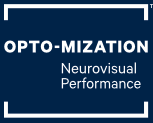I was looking through some of Chelsea’s school work from last year, and I started remembering what she was like a year ago. She was ANGRY. I would dread picking her up from school because I would have to bear the brunt of her temper. She didn’t have easy friendships; it was like she had lots of acquaintances, but no really good friends. I got lots of phone calls from the school because of her aggressive behaviour; arguments with her sisters were settled with her fists. She wasn’t an easy person to be around.
Chelsea struggled in every subject in school. Last year, in grade 5, she was reading at a grade 2 level. We were at the point that most of her work came home so that I could help her one-on-one. I would read her books aloud to her, read questions, and help her with spelling corrections. A simple worksheet would often take up to 2 hours, and multiple attempts, to complete. We were putting a huge amount of time and effort into her school work, waiting for the magical moment when things clicked, and finally got easier. At best we were treading water, but usually it felt like we were drowning.
Upon a referral from her optometrist, Chelsea went through an assessment, and Dr. McCrodan discussed what vision therapy was, and how it would benefit Chelsea. We went home to do some research on vision therapy. How come we hadn’t heard of this before? How come we hadn’t been referred earlier? The first blog I read on vision therapy could have been written about Chelsea, AND the next one, AND the next one – all the stories and experiences were similar to ours. Maybe we had finally found something that would help? We took a leap of faith, and signed her up.
It was after four sessions that we began to see things change – her sports improved. She was better at passing in soccer, she could shoot free-throws, and she could hit any ball that crossed the plate.
As she continued the program, we saw little changes – she could work on her homework for longer periods, she was reading street signs in the car, she would tell us something good about school. Nothing major, just small little things that made us realize that something was starting to happen.
After four months, we suddenly noticed that she wasn’t angry anymore. It had crept up on us. No more angry outbursts after school. No hitting her siblings. No phone calls from the teacher. We suddenly had a kid that was happy. She happily worked on her school work. She happily told us about her day, and talked about her friends. She smiled A LOT!
Six months into her program, she received her first report card for grade 6. She was reading at about a grade 4 level, but was working hard, and things were improving. She had improved so much that she had a B in English, AND Science, AND Social studies. We were amazed! It was hard to believe that this was the same student that had struggled for so long.
As we are completing her therapy program, she is now reading at, or above, grade level. Her teachers love her enthusiasm and confidence in the classroom, and it is reflected in her marks. Her interim report indicates that she has either an A or B in all her core subjects. She completes all her homework, quickly, and independently. This is much more than we ever expected!
We were also given something that we never expected – a happy kid! It is the change in her behaviour that, I think, is the most important benefit of her vision therapy. Chelsea is the happiest she has ever been! She has lots of new friends! She is confident, kind, and personable. Our whole family is happier. Chelsea’s life changed the day we walked into Dr. McCrodan’s office. It was a new beginning for her.
I have been the parent that has tried everything, and entered each September with the hope that “this year will be the year we get her going”. I have begged and pleaded for help from the school, the doctor, anyone who would listen. I knew I had a smart kid that had a learning issue. Seeing her assessment results, and listening to Dr. McCrodan, was an affirmation of all the things I had known all along, but Dr. McCrodan also knew what was wrong, AND how to fix it.
Vision Therapy is a long, sometimes frustrating journey. At times, you can wonder why you signed on, and ask yourself what you are accomplishing. As a parent who has had her hopes raised, and dashed, each school year – I wouldn’t raise hopes without knowing how well it can work. Vision Therapy isn’t well known, and many people are suspicious because it is new. Read! Research! Talk to other parents! The journey is worth the results.
